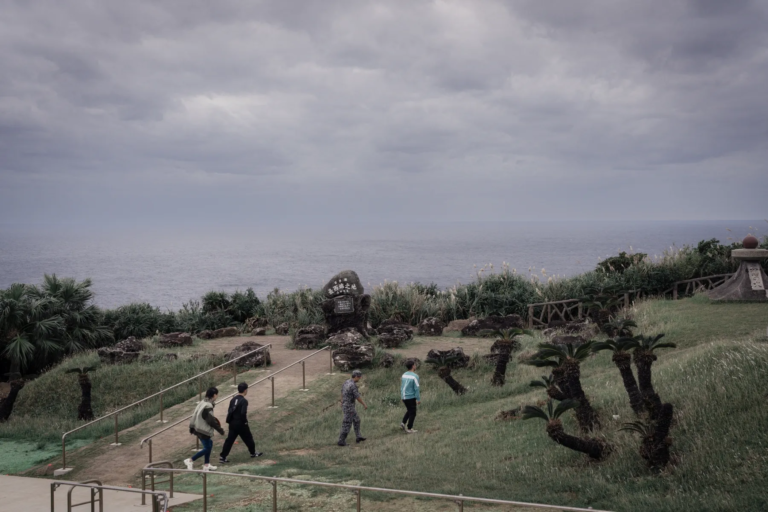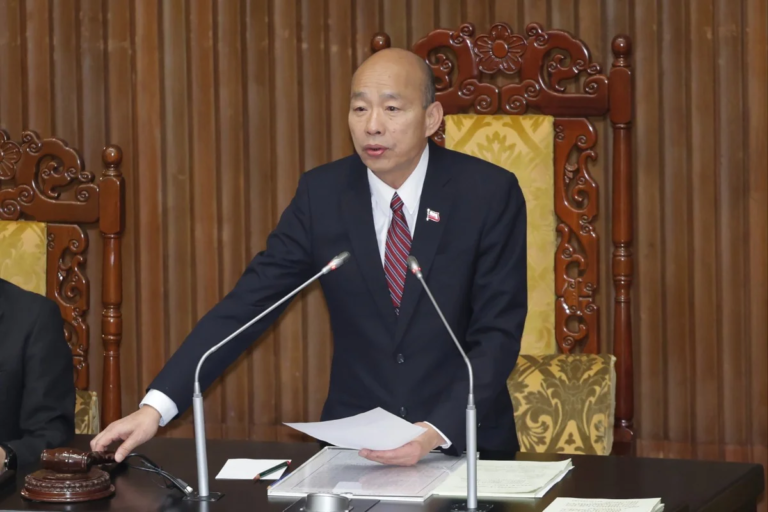
At this year’s commemorations in Japan for the US atomic bombings of Hiroshima and Nagasaki, there was a major departure from the past.
Seated among the attendees in both cities was Lee Yi-yang, head of the Taipei Economic and Cultural Representative Office in Japan, the island’s de facto embassy in the country.
At the Nagasaki event on Saturday, Lee sat with representatives from international non-government organisations, “inappropriate seating arrangements” that he attributed to pressure from Beijing, according to Taiwanese media reports.
Nevertheless, a Taiwanese official has never attended these events before and, after the ceremony in Hiroshima on Wednesday, Lee said the island hoped to have a presence there every year.
Lee’s appearance is part of a bigger effort by Taiwan to strengthen its unofficial bonds with Tokyo and raise the island’s international profile. Observers said Beijing would take a dim view of the participation, but both it and Tokyo would be careful to not undermine improving relations.
Lee’s attendance at the Hiroshima and Nagasaki events came two weeks after Taiwanese Foreign Minister Lin Chia-lung made a rare visit to Japan.
During that trip, Lin met various pro-Taiwan lawmakers in Tokyo, including Sanae Takaichi, a former economic security minister and contender for prime minister, and former defence minister Minoru Kihara.
Lin’s visit prompted swift condemnation from Beijing.
Beijing sees Taiwan as part of China to be reunited by force if necessary. Like most countries, Japan does not recognise Taiwan as an independent state.
Officially, Tokyo adheres to the one-China principle by maintaining formal diplomatic relations with Beijing and not Taipei. However, unofficial ties between Tokyo and the island are strong.
Zhang Yilun, a research associate at the Washington-based Institute for China-America Studies, said Taipei was “testing the waters to gain greater international visibility without formally breaching red lines”.
He said Taipei might also “urgently need to reinforce ties with America’s closest ally in Asia to maintain the appearance of strong US backing”.
Late last month, reports emerged that Washington had denied Taiwanese leader William Lai Ching-te a planned US stopover on his way to South America this month. The Taiwanese Presidential Office later said that Lai had no immediate plans for overseas travel.
The apparent snub was seen as removing a barrier to a summit between Chinese President Xi Jinping and his US counterpart Donald Trump.
However, at the Hiroshima event, Lee shook hands with George Glass, the US ambassador to Tokyo.
Lee later said that in his exchange with Glass, he expressed “the utmost gratitude” to the US’ diplomatic and military support to peace and stability in the Taiwan Strait, according to Taiwan’s Central News Agency.
The image of the two men shaking hands is one that “must have rattled Beijing”, according to Walter Hatch, a professor of government at Colby College in Maine and an Asian politics expert.
“Beijing has good reason to fear that Japan might be wavering on its commitment to the one-China policy,” he added, citing recent diplomatic exchanges as well as a former Japanese military official serving as an adviser to Taipei.
Wang Guangtao, an associate professor at the Centre for Japanese Studies at Fudan University, said Beijing was likely to view Taipei’s participation in the memorials as unacceptable.
“But under the current environment, Taiwan’s incentives to boost ties with Japan significantly outweigh Japan’s interest in Taiwan,” he said.
Wang said that Japanese Prime Minister Shigeru Ishiba, who took office in September, appeared to have a pragmatic approach to foreign policy.
“Ishiba is not an ideology-driven leader or a pro-Taiwan politician; his decisions are ultimately grounded in Japan’s national interests … Ishiba views improving relations with China as beneficial for Japan, particularly given geopolitical volatility,” Wang said.
Still, two nations remain deeply at odds over historical grievances, rising nationalism, and territorial disputes over the Diaoyu Islands, known in Japan as the Senkakus. Japan has also been deeply cautious against China’s rapid acceleration of military activity.
Hatch said Ishiba had tried to distance himself from pro-Taiwan activities.
“But Beijing is watching very carefully.”
Lian Degui, from Shanghai International Studies University, said that for Beijing, Lee’s presence at Hiroshima and Nagasaki was a continuation of the “collusion between Taipei and Tokyo”, a long-standing friction that regularly arises in Sino-Japanese relations.
“Within the limits of Beijing’s tolerance, Japan often uses these non-governmental activities to test the boundaries and strengthen its ties with Taiwan,” he said.
But Beijing is unlikely to respond strongly, Lian added.
“Sino-Japanese relations have remained stable this year, with Beijing prioritising better ties and economic cooperation. Escalating tensions with Japan on this issue appears to be counterproductive to China’s national interests,” Lian said.
Zhang said Beijing was likely to express its concern over Taiwan’s growing diplomatic visibility in Japan. Tokyo, meanwhile, might also be careful to avoid escalation in tensions with China.
“The Ishiba administration is already under pressure domestically, and with unresolved trade tensions still lingering between the US and Japan, Tokyo has little strategic incentive to escalate friction with Beijing.”





